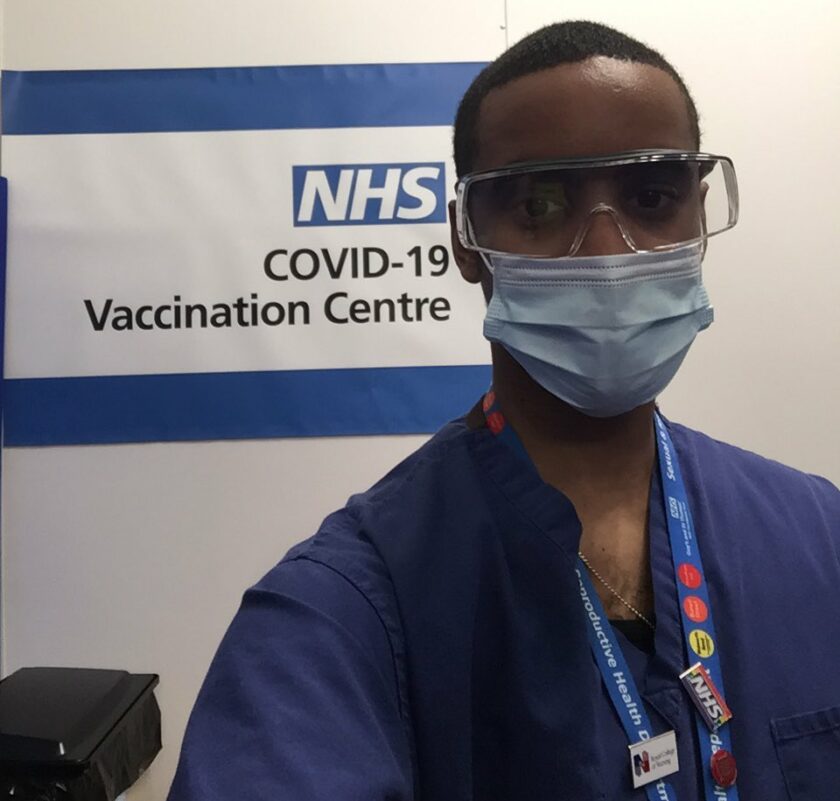
My name is Ross Anderson, I am a Florence Nightingale Foundation scholar and I work as a charge nurse for a large NHS Trust in London. I was redeployed to one of it’s vaccination centres as part of the largest vaccination roll-out in the country and I work over 5 very busy vaccination centres within the trust.
What it’s like being part of the vaccination programme and what inspired me to join
I was inspired to join the vaccination programme as I wanted to be a part of this roll-out of to help turn the tide of the pandemic. This was especially important to me personally, having already worked on a Covid ward during the first wave as I felt that this would be a real opportunity to see this through the full cycle and really make a difference. Working in the vaccination pods is very busy, but equally rewarding. It also has a real buzz, the patients are extremely grateful to be receiving the vaccine and there is a real sense of hope amongst patients and staff.
Different challenges faced while being involved in the programme
One of the challenges of the vaccination programme is working over various vaccination centres within the trust. One particular centre is within a building and therefore poses certain limitations around the constraints of a previously established environment. It’s also important to observe social distancing guidelines and the logistics of controlling patient waiting times to avoid congestion. Part of my role is being the Nurse in charge of one of the vaccination centres, and as such this involves making sure that the amount of vaccine doses ordered exactly matches the number of patients expected in order to completely eliminate any chance of wastage of valuable vaccine. This can be extremely challenging as patients are constantly moving through different stages of the vaccination centre.
What the pandemic has been like for me
During the first wave of the pandemic, I was redeployed to the Intensive care unit at a large NHS Trust in London. At the time, whilst I considered this to be a great honour and a duty, this also seemed to be quite a daunting task as there were a number of unknowns around the virus and it’s transmission at that stage. Working on the front line at that time was an emotional and sometimes harrowing experience, but I feel very proud to have stood with my many colleagues at such an important moment in the history of the NHS. As the first wave began to flatten, some of us began returning to our original specialities but little did we imagine that this was only the beginning. Thankfully, with the rise of the second spike also came the emergence of the vaccine, and so I was very happy to be asked to join the vaccination effort and continue to make a real difference as part of something which now offers hope and a glimmer of light at the end of the tunnel.
Hopes for a return to normal life
Now that the vaccination programme in the UK is well under way, I feel that we can start to dare to hope for a brighter future somewhere on the horizon. It would be so nice to think of being able to finally see friends and family. To socialise once more and to once again take part in activities that at one time we all used to take for granted, but that will feel so much more remarkable after having gone for so long without them. I feel that while we may begin to look forward to some kind of “normality”, we will also never forget this moment in history.